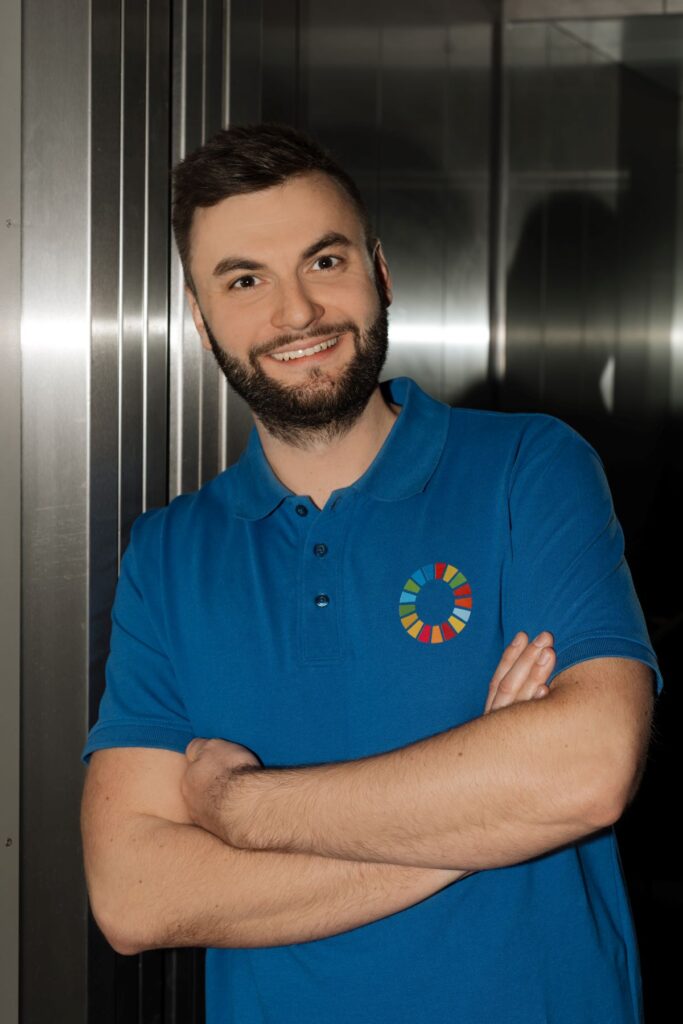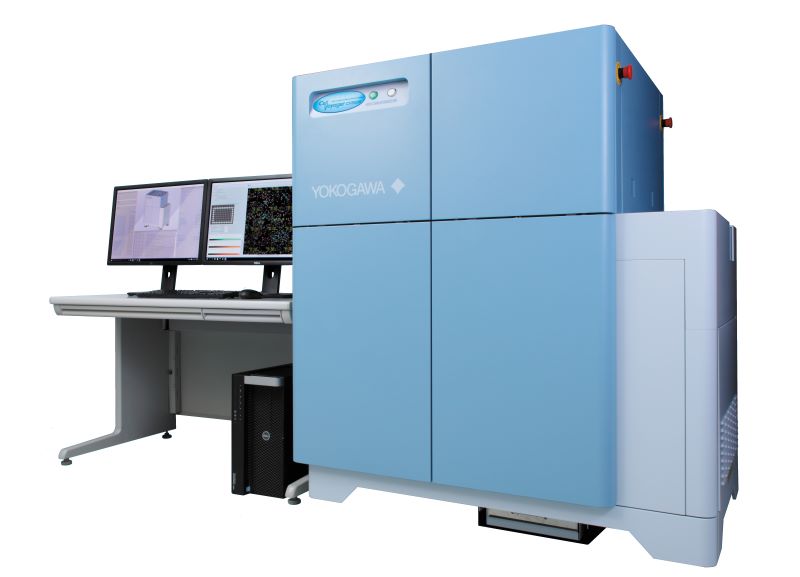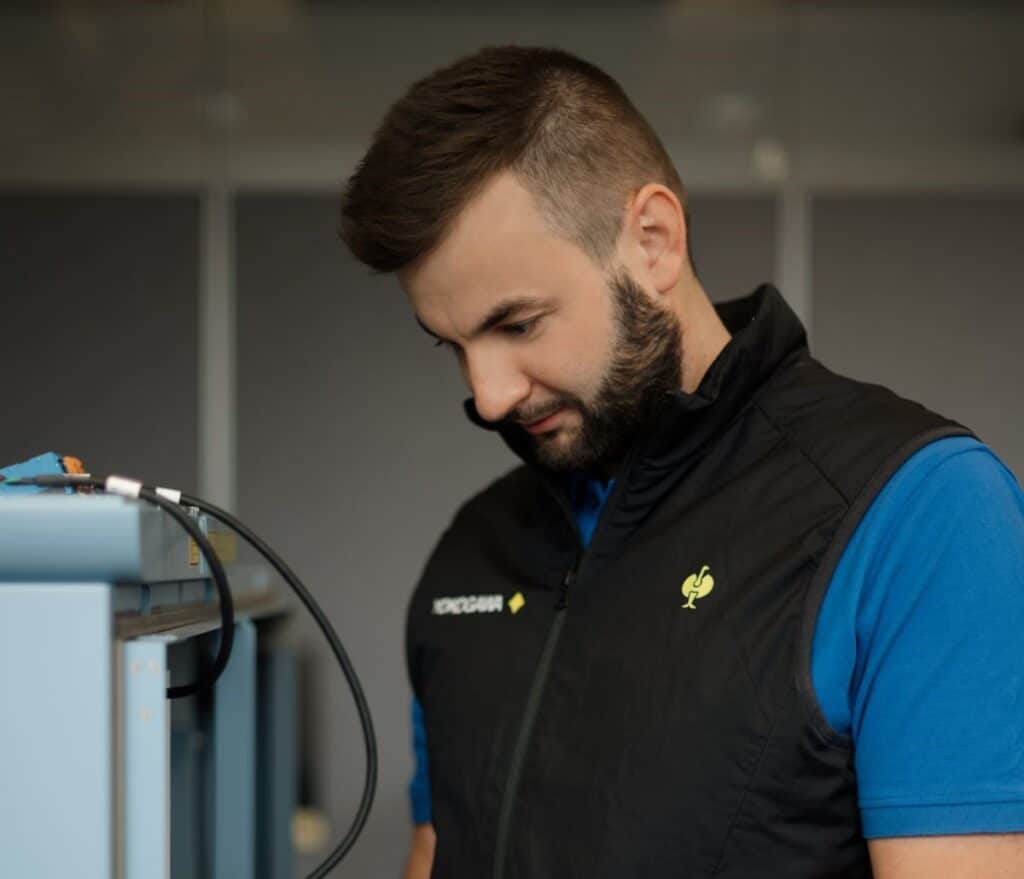LI Blog: Thanks for joining the interview. Could you briefly introduce yourself?

Stephan Müller: “I’m Stephan, recently appointed as a Field Service Engineer at Yokogawa’s Life Science division. Before joining Yokogawa, I worked in academia. As a former Drosophilist (Drosophila melanogaster, or commonly known as “the fruit fly”), I have explored different facets of this fascinating animal from an imaging standpoint. Drosophila researchers often make great microscopists, too!
In my (non-)professional life I like to understand how things work and to fix them. Or at least I’ll try. I just like to see that stuff can be re-purposed. If there is time left, I like traveling, preferentially on a motorbike.”
The Core Role of a Field Service Engineer
LI Blog: What are your main tasks as a field service engineer?
Stephan Müller: “The job evolves around all aspects of a product life cycle when, or shortly before, being in the hands of the end-user. Fixing, explaining, and figuring out what’s wrong, Or, in almost all cases, right.”
Advantages of using the CellVoyager CV8000

LI Blog: Why should customers decide to buy the CellVoyager CV8000?
Stephan Müller: “As with motorbikes, Japanese microscopes stand for quality. During my live-imaging focused PhD, I would have loved to have access to a product such as the CV8000. Scientists should have the time to keep their minds on actual science, rather than laborious, yet repetitive, tasks. The CV8000 automatizes your entire imaging workflow while keeping your samples alive throughout the duration of your experiment. Such an automatically maintained experimental environment, in combination with gentle light exposure particularly suited for long-term experiments, would have saved me and those poor PhD students who are not yet done with their PhDs, months, if not years, of a valuable lifetime, spent dealing with equipment that isn’t properly functioning.”
Passion for Live-Cell Imaging
LI Blog: What do you like most about your job?
Stephan Müller: “I’m now getting paid for that part of my previous job that I liked the most but has been unpaid. It is fascinating to work and understand the very devices that are used to describe as accurately as possible what nature had millions of years to perfect. It’s just great to see that we are nowadays able to observe life well beyond the extend of what I have dreamed possible ten years ago. And it will only get better.”

LI Blog: Why did you decide to focus on live imaging?
Stephan Müller: “For decades, researchers have been able to resolve fine details of whatever specimen using techniques such as electron microscopy. However, fixed samples are, as the names suggest, fixed or inherently dead, respectively. Being alive is the exact opposite of a fixed sample. So understanding cellular dynamics is a task that can only be performed on living samples. The 20th century was about structure, the 21st century will be about dynamics. Biology will become the most data-intensive scientific research area, and it’s just very cool to be part of it.”
Academia vs. Corporate
LI Blog: You worked at a university research institute before. If you compare, what is the biggest difference between an academic position and a corporate job?
Stephan Müller: “As of now, it doesn’t feel overly different. The actual work seems very similar, it’s just that the working conditions are so much better outside academia. Additionally, the corporate world relies on earning its own money. Unlike academia, where funding is always measured by the amount that comes in, rather than the use of it, in the corporate world, spending is differently justified. It seems to me as if this makes processes way more efficient rather than relying on more working hours of (mostly underpaid) scientific personnel.”
The Yokogawa Spirit
LI Blog: What do you like most about working at Yokogawa?
Stephan Müller: “From what I’ve seen so far, there seems to be a clear distinction between work and life, while keeping the professional life flexible enough to fit to nowadays adult lives. Also, people seem to have very clear job descriptions, there is always someone who knows what to do or whom to ask.”
A personal Message to our Readers
LI Blog: Would you like to share something with our blog readers?
Stephan Müller: “Ask questions and happy imaging!”




